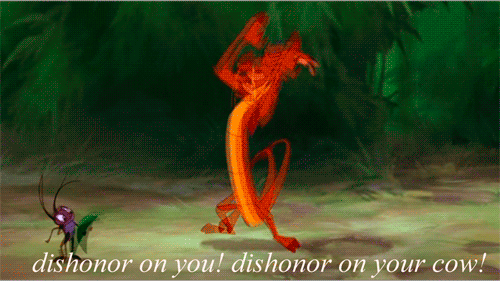The Essay --Click here to view--
Pite(Student ID: 003-xxx-xxx)
Political Science 10
Professor Rocco
Final
1. Plato and Machiavelli
Human Nature and Ideas on Political Regime and Community.
It can be seen that the differences between Plato and Machiavelli’s ideas on the best form of a perfect political system. Plato argues for a segregated system where the people would be segregated by their innate natures, Machiavelli declares that a republic where conflict between three layers of society would ensure stability. The reason for such discrepancies between the two systems is due to the differences in how the two perceive human nature.
Plato describes the human nature as split into three parts: appetite, spirit and reason. The reason he develops that view is that he assumes that a city can be a representative of a single individual, since the city is bigger and the nature’s can be found easier. When he creates his polis, he develops three groups of people that are reliant upon each other, the artisans, the guardians, and the philosopher kings. The reason for their reliance upon each other is that the guardians and philosopher kings need somebody to provide food, the artisans and philosopher kings need somebody to protect them from foreign invasion, and finally the artisans and guardians need people to rule them. Plato correlates the two by pointing out that humans need to provide themselves with food, they need to protect themselves, and the need coordinate themselves. The three needs come out of the three components of the human spirit, the need for food is the component of appetite, the need for protection is the component of spirit, and the need for coordination is the component of wisdom. Each person has all three components, the dominance of one of the components decides on one’s stance in the society. A person who has a dominance of the appetite, they were to become artisans of the community, a person with high spirit became a guardian, but only those who had wisdom as their dominant component became a philosopher king.
The segregation of people in the society is the basis of the society in Plato’s mind. The fact that the philosopher kings are to desire wisdom is the reason they are kings. Desire for wisdom, in Plato’s framework, is the desire for the “form” of good, which is the purpose of “The Political”, the reason for the desire for the “form” of good is that the idea of the “form”. The “form” is the perfect blueprint for the objects of the physical world, for example without the “form” of apple; an apple is no longer an apple. To attain the knowledge of the “form” of good one has to have the component of desire for wisdom for .By knowing the “form” of good, the philosopher kings can rule the people since all of his rulings are good and because it is infused with the “form” of good that was attained by the philosopher kings.
Machiavelli on the other hand states that human nature is composed of two elements, the larger more powerful one called wickedness and the weaker one which is the desire for freedom. Machiavelli assumes that human nature is inherently evil since we all have ambition brewing within us, but within us we also have the desire for freedom from being controlled by the rulers. The changes in the collective human nature change the, one of two basic ideas of Machiavelli, virtu of the society. The reason for such correlation is that according to Machiavelli comes from the definition of virtu, virtu is the energy and the desire for change inside a society. It changes accordingly since the society is built of people and those people when their desire for freedom emerges; virtu emerges with it since the desire for freedom begins with the desire for change in a society.
Machiavelli knowing that in all societies’ rulers in the end falls into their wickedness when the desire for freedom weakens within them. Machiavelli discusses the relatively “good” systems such as principalities, aristocracies and democracies fall into their “evil” versions, tyranny, oligarchy, and anarchy. Machiavelli knows that and uses the wickedness of the human being to fuel his ideal political regime, the Republic that would have three layers of the society: the rich, the middle class, and the poor. The stability of that Republic despite the wickedness of humans is that all three of them would be represented in the society, the wickedness of each class to rule another would meet with the opposition of the other ones, whether their opposition would be fueled by desire for freedom or wickedness. The system would also affirm the maximization of freedom for all classes, since the classes would demand freedom for their own and since all layers of the society are fully represented, freedom in this system can be granted for all.
The two theorists came to different conclusions on the question of human nature are their different ways they arrived to their respective conclusions. For Plato, he arrived at the conclusion by using a rational deduction of how a person was similar to a city. First, he assumed that the social structure of a city is the same as a structure of a human being. Machiavelli used historical analysis as a method to deduct the human tendencies by finding a pattern in human behavior throughout the history of the Italian peninsula. The way he does it is that he makes a thesis and then uses certain events to support it. The difference between the two approaches is that Plato assumes that human nature is unchangeable since when one’s life is determined when they are educated. Machiavelli on the other hand sees that people change over time since the human nature is a conflict between the wickedness and the desire for freedom and one sometimes wins over the other. The constancy of the human nature by Plato creates a stable and a minority ruled society. Plato assumes that to rule the society one has to desire only wisdom and that is the smallest group of people who would discard physical possessions for the pursuit of the “form” of good and since the human nature is stable, there are no artisans would ascend into kingship or the philosophy king would descend into guardianship. The reason is that people who are naturally inclined to a certain activity are only good at that would not be good in anything else thus there is no social mobility when one is assigned into a group. Machiavelli disagrees that human nature is stable because for him human nature is an ongoing conflict between the stronger wickedness and weaker desire for freedom. He sees that nations change due to the shifts of human nature, band he tries to use the change in human natures to sustain his ideal political system rather than to destroy it. For the system, it does not matter how the human nature changes, the three classes will still fight for their own freedom whether they desire freedom or their wickedness wants to gain advantage for their own class.
In my opinion, the approach to human nature taken by Plato assumes that humans will act according to their nature and will not desire to become something more than they are assigned to do. Like philosopher kings who do not posses any material goods, humans are greedy as Machiavelli points out and the philosopher kings might be overcome by their wickedness and become tyrants in the Platonian society. Looking at it another, way the artisans and guardians who are displeased by the rule of the philosopher kings might increase their levels of virtu and try to overthrow them with their desire for freedom. The Machiavellian society, the three classes of people that would compete with each other could face challenges since representatives of each class did not have the nature to rule over the society. For Plato such a system would allow people not made for ruling, such as people elected due to military merit or material riches, to rule and give not “good” judgments since the people were not the ones to pursue the true form of “good”. The people who ruled without the desire to pursue the knowledge of “good” were not good rulers and for Plato the Machiavellian society would collapse since a series of “bad” rulings would have a detrimental effect on the society. The reason for such assumption is that bad rulers of the middle class chosen due to their popularity could be worse politicians than those from other two classes, those inept politicians could lead to the downfall of the rich class in Machiavelli’s society, making the rich and the poor the only classes in the competition.
3. Plato and Rousseau:
Justice and Democracy
J.J. Rousseau in his Social Contract described the notion of state of nature and of a society built upon the aim to become as close to the state of nature as possible, justice in his society can be attained through democracy. Plato on the other hand argues that justice can only be attained when the ruler class posses the knowledge of the “form” of good. The two idea of justice conflict with each other since For Plato justice cannot be attained through democracy while Rousseau based his idea of justice on the grounds of democracy.
Rousseau and Plato differed in their respective approaches to justice. For Rousseau democracy in his Social Contract would deliver justice on the grounds of being based upon state of nature’s concept of justice and equality. In the primal existence of human beings, every human was equal and free to live as they pleased since there was no notion of private property nor rules or societies. Equal since it is because of private property one can attain dominance over another person and free because there are no rules to chain a man down. Justice in Rousseau is based on democracy since it is the only system where people are able to give their own liberty to others and gain the liberty of others, by having everybody relinquish their liberty they become equal since they all relinquished their liberties. In a democracy, they all agree to participate in creating laws and agree to abide by the process of democracy, that legitimized the government since people were equal were able to rule themselves. Liberty and equality were attained through the process of democracy where everyone agrees on abiding the process that they all gave their own liberty to everybody. Justice therefore stemmed from this system since everybody ruled for the good of the society. You could not say that the law was wrong since you were the one to make the law.
Plato on the other hand stated that justice couldn’t be attained through the democratic system; in his life he had experienced how ineffective and unjust a democratic society can be. He argued that the fact that people elected to the Athenian government were often elected due to their military merit or material possessions. The reason Plato criticized this type of government as unjust is twofold, first that kind of government sentenced the most moral man in Plato’s eyes to death, that man was his mentor Socrates. The second reason was based on Plato’s idea of each person having a different nature that let them be good at a certain activity but not at governing. Plato developed the idea of human nature consisting of three elements; those elements are appetite, spirit and wisdom. In Plato’s view, the rulers need to have the wisdom element as the dominant one so that they could go and pursue the knowledge of the “form” of good. The idea of “forms” comes from Plato’s concept of everything having an essence of being; for example, a triangle without the “form” of a triangle cannot be a triangle anymore. Rulers have to pursue the “form” of good to be able to give rules and judge well since they know what good is. Therefore, the people who are elected into power through the democratic process often do not possess the desire to know the “form” of good since either they possess material riches, a trait of the appetite driven person, or they have military merits, a spirit driven person.
The two theorists had disagreed on two major premises, on the source of justice and on the impact of democracy on justice. First Rousseau states that justice cannot exist in a society if the people are not free and equal, since the legitimacy of the government lies upon the agreement within the people to obey the system they live in. On the other hand, for Plato justice comes from the rulers’ knowledge of the “form” of good and the application of it. The reason for this difference is their perceptions of human nature. Rousseau states that in the most primitive times humans had two main traits, self-preservation and natural feeling of sympathy towards others. The reason for such assumptions is that in the very beginning of the human time, humans only needed to sustain themselves and it is human to help others who wouldn’t feel pity and sympathy towards a person who’s bleeding in front of us. Two other components stemming from the primitive life of the people are the notions of full liberty and equality. It comes from the lack of private property without it people cannot make themselves look wealthier than others nor they can use them to oppress others. Plato disagrees that human nature is such, he argues that the human nature is composed of three elements that come from the three basic needs of human beings, the need for material possessions, the need for protection, and the need for the body to be coordinated; each of which are described by Plato as :appetite, spirit and wisdom. The source of justice for Rousseau is a legitimate democratic government. According to Rousseau the fact that everyone participates in the democratic process, and agrees upon the laws they themselves have created. The reason Rousseau chose the democratic system is that it is the only system where people can voice their opinions and vote upon them. By being able to participate in the making of rules, people agree to give their liberty to others and gain the liberty of everyone else. Therefore, they are able to decide upon the laws and by doing so, they are given the liberty to choose which laws to obey since they made the laws, and no man would make a law they would abide by. If the laws are made so that everyone abides by them, justice is there too, people create laws that go according to their
Political Science 10
Professor Rocco
Final
1. Plato and Machiavelli
Human Nature and Ideas on Political Regime and Community.
It can be seen that the differences between Plato and Machiavelli’s ideas on the best form of a perfect political system. Plato argues for a segregated system where the people would be segregated by their innate natures, Machiavelli declares that a republic where conflict between three layers of society would ensure stability. The reason for such discrepancies between the two systems is due to the differences in how the two perceive human nature.
Plato describes the human nature as split into three parts: appetite, spirit and reason. The reason he develops that view is that he assumes that a city can be a representative of a single individual, since the city is bigger and the nature’s can be found easier. When he creates his polis, he develops three groups of people that are reliant upon each other, the artisans, the guardians, and the philosopher kings. The reason for their reliance upon each other is that the guardians and philosopher kings need somebody to provide food, the artisans and philosopher kings need somebody to protect them from foreign invasion, and finally the artisans and guardians need people to rule them. Plato correlates the two by pointing out that humans need to provide themselves with food, they need to protect themselves, and the need coordinate themselves. The three needs come out of the three components of the human spirit, the need for food is the component of appetite, the need for protection is the component of spirit, and the need for coordination is the component of wisdom. Each person has all three components, the dominance of one of the components decides on one’s stance in the society. A person who has a dominance of the appetite, they were to become artisans of the community, a person with high spirit became a guardian, but only those who had wisdom as their dominant component became a philosopher king.
The segregation of people in the society is the basis of the society in Plato’s mind. The fact that the philosopher kings are to desire wisdom is the reason they are kings. Desire for wisdom, in Plato’s framework, is the desire for the “form” of good, which is the purpose of “The Political”, the reason for the desire for the “form” of good is that the idea of the “form”. The “form” is the perfect blueprint for the objects of the physical world, for example without the “form” of apple; an apple is no longer an apple. To attain the knowledge of the “form” of good one has to have the component of desire for wisdom for .By knowing the “form” of good, the philosopher kings can rule the people since all of his rulings are good and because it is infused with the “form” of good that was attained by the philosopher kings.
Machiavelli on the other hand states that human nature is composed of two elements, the larger more powerful one called wickedness and the weaker one which is the desire for freedom. Machiavelli assumes that human nature is inherently evil since we all have ambition brewing within us, but within us we also have the desire for freedom from being controlled by the rulers. The changes in the collective human nature change the, one of two basic ideas of Machiavelli, virtu of the society. The reason for such correlation is that according to Machiavelli comes from the definition of virtu, virtu is the energy and the desire for change inside a society. It changes accordingly since the society is built of people and those people when their desire for freedom emerges; virtu emerges with it since the desire for freedom begins with the desire for change in a society.
Machiavelli knowing that in all societies’ rulers in the end falls into their wickedness when the desire for freedom weakens within them. Machiavelli discusses the relatively “good” systems such as principalities, aristocracies and democracies fall into their “evil” versions, tyranny, oligarchy, and anarchy. Machiavelli knows that and uses the wickedness of the human being to fuel his ideal political regime, the Republic that would have three layers of the society: the rich, the middle class, and the poor. The stability of that Republic despite the wickedness of humans is that all three of them would be represented in the society, the wickedness of each class to rule another would meet with the opposition of the other ones, whether their opposition would be fueled by desire for freedom or wickedness. The system would also affirm the maximization of freedom for all classes, since the classes would demand freedom for their own and since all layers of the society are fully represented, freedom in this system can be granted for all.
The two theorists came to different conclusions on the question of human nature are their different ways they arrived to their respective conclusions. For Plato, he arrived at the conclusion by using a rational deduction of how a person was similar to a city. First, he assumed that the social structure of a city is the same as a structure of a human being. Machiavelli used historical analysis as a method to deduct the human tendencies by finding a pattern in human behavior throughout the history of the Italian peninsula. The way he does it is that he makes a thesis and then uses certain events to support it. The difference between the two approaches is that Plato assumes that human nature is unchangeable since when one’s life is determined when they are educated. Machiavelli on the other hand sees that people change over time since the human nature is a conflict between the wickedness and the desire for freedom and one sometimes wins over the other. The constancy of the human nature by Plato creates a stable and a minority ruled society. Plato assumes that to rule the society one has to desire only wisdom and that is the smallest group of people who would discard physical possessions for the pursuit of the “form” of good and since the human nature is stable, there are no artisans would ascend into kingship or the philosophy king would descend into guardianship. The reason is that people who are naturally inclined to a certain activity are only good at that would not be good in anything else thus there is no social mobility when one is assigned into a group. Machiavelli disagrees that human nature is stable because for him human nature is an ongoing conflict between the stronger wickedness and weaker desire for freedom. He sees that nations change due to the shifts of human nature, band he tries to use the change in human natures to sustain his ideal political system rather than to destroy it. For the system, it does not matter how the human nature changes, the three classes will still fight for their own freedom whether they desire freedom or their wickedness wants to gain advantage for their own class.
In my opinion, the approach to human nature taken by Plato assumes that humans will act according to their nature and will not desire to become something more than they are assigned to do. Like philosopher kings who do not posses any material goods, humans are greedy as Machiavelli points out and the philosopher kings might be overcome by their wickedness and become tyrants in the Platonian society. Looking at it another, way the artisans and guardians who are displeased by the rule of the philosopher kings might increase their levels of virtu and try to overthrow them with their desire for freedom. The Machiavellian society, the three classes of people that would compete with each other could face challenges since representatives of each class did not have the nature to rule over the society. For Plato such a system would allow people not made for ruling, such as people elected due to military merit or material riches, to rule and give not “good” judgments since the people were not the ones to pursue the true form of “good”. The people who ruled without the desire to pursue the knowledge of “good” were not good rulers and for Plato the Machiavellian society would collapse since a series of “bad” rulings would have a detrimental effect on the society. The reason for such assumption is that bad rulers of the middle class chosen due to their popularity could be worse politicians than those from other two classes, those inept politicians could lead to the downfall of the rich class in Machiavelli’s society, making the rich and the poor the only classes in the competition.
3. Plato and Rousseau:
Justice and Democracy
J.J. Rousseau in his Social Contract described the notion of state of nature and of a society built upon the aim to become as close to the state of nature as possible, justice in his society can be attained through democracy. Plato on the other hand argues that justice can only be attained when the ruler class posses the knowledge of the “form” of good. The two idea of justice conflict with each other since For Plato justice cannot be attained through democracy while Rousseau based his idea of justice on the grounds of democracy.
Rousseau and Plato differed in their respective approaches to justice. For Rousseau democracy in his Social Contract would deliver justice on the grounds of being based upon state of nature’s concept of justice and equality. In the primal existence of human beings, every human was equal and free to live as they pleased since there was no notion of private property nor rules or societies. Equal since it is because of private property one can attain dominance over another person and free because there are no rules to chain a man down. Justice in Rousseau is based on democracy since it is the only system where people are able to give their own liberty to others and gain the liberty of others, by having everybody relinquish their liberty they become equal since they all relinquished their liberties. In a democracy, they all agree to participate in creating laws and agree to abide by the process of democracy, that legitimized the government since people were equal were able to rule themselves. Liberty and equality were attained through the process of democracy where everyone agrees on abiding the process that they all gave their own liberty to everybody. Justice therefore stemmed from this system since everybody ruled for the good of the society. You could not say that the law was wrong since you were the one to make the law.
Plato on the other hand stated that justice couldn’t be attained through the democratic system; in his life he had experienced how ineffective and unjust a democratic society can be. He argued that the fact that people elected to the Athenian government were often elected due to their military merit or material possessions. The reason Plato criticized this type of government as unjust is twofold, first that kind of government sentenced the most moral man in Plato’s eyes to death, that man was his mentor Socrates. The second reason was based on Plato’s idea of each person having a different nature that let them be good at a certain activity but not at governing. Plato developed the idea of human nature consisting of three elements; those elements are appetite, spirit and wisdom. In Plato’s view, the rulers need to have the wisdom element as the dominant one so that they could go and pursue the knowledge of the “form” of good. The idea of “forms” comes from Plato’s concept of everything having an essence of being; for example, a triangle without the “form” of a triangle cannot be a triangle anymore. Rulers have to pursue the “form” of good to be able to give rules and judge well since they know what good is. Therefore, the people who are elected into power through the democratic process often do not possess the desire to know the “form” of good since either they possess material riches, a trait of the appetite driven person, or they have military merits, a spirit driven person.
The two theorists had disagreed on two major premises, on the source of justice and on the impact of democracy on justice. First Rousseau states that justice cannot exist in a society if the people are not free and equal, since the legitimacy of the government lies upon the agreement within the people to obey the system they live in. On the other hand, for Plato justice comes from the rulers’ knowledge of the “form” of good and the application of it. The reason for this difference is their perceptions of human nature. Rousseau states that in the most primitive times humans had two main traits, self-preservation and natural feeling of sympathy towards others. The reason for such assumptions is that in the very beginning of the human time, humans only needed to sustain themselves and it is human to help others who wouldn’t feel pity and sympathy towards a person who’s bleeding in front of us. Two other components stemming from the primitive life of the people are the notions of full liberty and equality. It comes from the lack of private property without it people cannot make themselves look wealthier than others nor they can use them to oppress others. Plato disagrees that human nature is such, he argues that the human nature is composed of three elements that come from the three basic needs of human beings, the need for material possessions, the need for protection, and the need for the body to be coordinated; each of which are described by Plato as :appetite, spirit and wisdom. The source of justice for Rousseau is a legitimate democratic government. According to Rousseau the fact that everyone participates in the democratic process, and agrees upon the laws they themselves have created. The reason Rousseau chose the democratic system is that it is the only system where people can voice their opinions and vote upon them. By being able to participate in the making of rules, people agree to give their liberty to others and gain the liberty of everyone else. Therefore, they are able to decide upon the laws and by doing so, they are given the liberty to choose which laws to obey since they made the laws, and no man would make a law they would abide by. If the laws are made so that everyone abides by them, justice is there too, people create laws that go according to their
Again thanks for any feedback !
Pite
Edited by Pite, 25 July 2009 - 04:18 AM.



 This topic is locked
This topic is locked

















